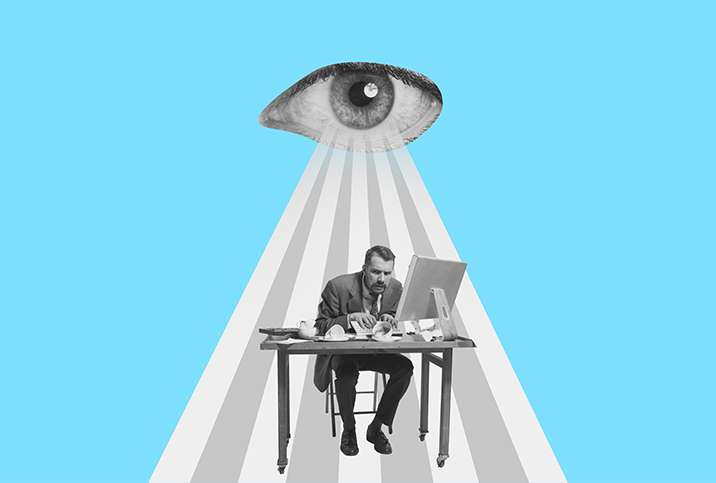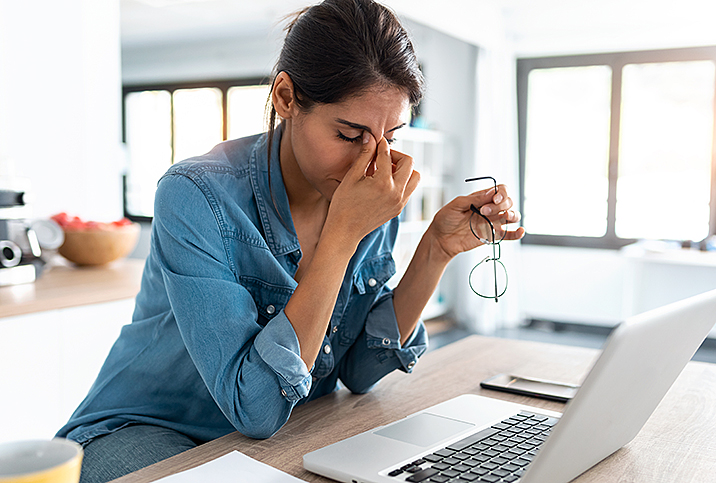Don't Let Stress Impact Your Sexual Health

Stress is a physical, mental or emotional response to a demand or challenge. While the word "stress" is often associated with negative feelings, not all stress is bad. Generally, stress provides energy and motivation to complete tasks or challenges. However, too much stress, or chronic stress, can pose serious health risks.
As well as general health concerns, stress can also impact sexual health. Chronic stress can lead to developing diabetes or hypertension, and those conditions can affect libido and, for men, contribute to erectile dysfunction (ED).
Stress can also cause havoc in the production of hormones in your body. An increase in the "stress hormone" cortisol can be responsible for increasing the levels of sugar in the bloodstream, and that may trigger increased production of stress hormones. Stress can lower testosterone levels, a hormone that plays an important role in your libido.
We will explain how to treat stress, how it can impact your sexual health, more serious conditions that can arise, and myths and misconceptions you need to know.
How to treat stress
Marni Chanoff, M.D., an integrative psychiatrist on the faculty of Harvard Medical School and McLean Hospital in Massachusetts and founder of Joy In Health, a mental health program, said treating stress is a matter of helping people find their own internal and external resources to help them cope with stress.
When someone experiences stress, it sends their nervous system into a state of fight, flight or freeze. In situations of acute stress, the nervous system resets after the stressful event.
Chanoff explained that when we experience chronic stress, however, our nervous system is unable to reset after a stressful event, causing it to become a danger to our health. Treating stress is often a matter of finding techniques that help your nervous system to reset or increase your capacity to cope with stressful events.
She recommended taking note of what things help you feel calm, relaxed, safe, secure, well-rested and well-nourished. Performing these activities when you're stressed can help your nervous system reset. In addition, making an effort to do so regularly can increase your capacity to handle stressful events.
For example, if you slept four hours last night and didn't have breakfast, it may be difficult to manage small, stressful events. Whereas, if you had a full night's rest and an adequate meal, your capacity to cope with similar stressful situations is much higher.
"People can learn how to slow down [and] practice good sleep hygiene so that they have a better chance of getting a good night's sleep," Chanoff explained. "You can eat nutritiously to give your body the food that your body needs, limit your caffeine and prioritize moving your bodies regularly as a stress relief.
"People can try to limit the amount that they're on screens and social media and why they're on social media in the first place," she added.
Chanoff said being aware of the social media content you're consuming is important. If the content feeds your anxiety and stress, reduce the amount of time you spend consuming it. The same can be true of TV and movies, especially if you become addicted to news stories.
Perhaps more importantly, Chanoff recommended reaching out to trusted friends, family and colleagues and refraining from isolating yourself.
How stress impacts your sexual health
There are several ways stress impacts your sexual health. For example, many people say stress decreases libido. When someone is stressed, they may be less interested in sex, think of it less often, initiate it less frequently and have more difficulty getting turned on. However, some people experience the opposite effect and stress increases their libido. While this is less common, it does happen, according to Emily Nagoski, Ph.D., in her book, "Come As You Are: The Surprising New Science That Will Transform Your Sex Life."
"In addition to libido, stress can cause erectile dysfunction (ED) in men, and may hinder the ability to get wet or produce lubrication [in women]," Chanoff said.
One reason this happens is that during the state of fight, flight or freeze, a signal is sent to your brain indicating it's not safe to get turned on, making it difficult to get an erection or get wet, according to Nagoski's book.
Additionally, stress can cause a negative impact on your relationship dynamics.
"If you're in a relationship and you're stressed, you might not be able to feel as connected or as safe or trusting in that relationship," Chanoff said.
Not feeling safe or emotionally connected to your partner, for some people, can hinder libido or make sex less enjoyable.
"Stress can bring up a lot of conflict in relationships and that can affect sexual health," she added.
Conflict within relationships can also reduce sex drive and negatively impact your sexual connection.
Complications and related conditions
There are several complications and conditions that can arise from chronic stress. One of the most significant concerns is the weakening of the immune system.
In a study published in 2008 in the Malaysian Journal of Medical Sciences, researchers wrote, "Several studies have shown that chronic stress exerts a general immunosuppressive effect that suppresses or withholds the body's ability to initiate a prompt, efficient immune reaction."
This effect can lead to the weakening of your immune response, affecting your ability to fight off illnesses. The study states that when this happens, it puts strain on other body parts associated with the production and maintenance of the immune system.
"For example, atrophy of the thymus or shrinking of the thymus results in its inability to produce T cells [a type of white blood cell] or the hormones needed to stimulate them," the researchers wrote.
Stress can also have a major impact on sleep. It's common for chronic or high stress to make it more difficult to fall asleep or stay asleep. Stress can even cause insomnia, Chanoff said, adding that muscle tension, pain and discomfort can all develop as a result of stress. Our muscles respond to stress by becoming guarded, making muscle tension a common issue.
"We can develop chronic pain and discomfort because our bodies are holding tension and stress in the muscle and skeletal system," she said. "This can create pain, discomfort and decrease [your ability to] exercise."
Stress has been known to cause gastrointestinal tract (GI) complications, too.
"We know stress can affect the gut biome and the bacteria in the gut," Chanoff noted. "[This] can affect our ability to digest healthy foods. Fruits and vegetables can be harder to digest well and it can be harder to extract all of their relative nutrients."
You may also experience GI complications in the way of stool. Stress can cause diarrhea or, on the other end of the spectrum, constipation, she added.
3 myths and misconceptions
1. Stress is bad
Chanoff said a common misconception is that all stress is bad and something we all need to avoid. Many people believe if they're stressed, then they're in trouble, she said.
While stress can be negative at times, and chronic stress does have major health impacts and complications, stress is not always a bad thing. Stress helps us overcome challenges and gives us motivation and energy to complete tasks.
Try to approach stress by considering the amount you are able to cope with comfortably. Ask yourself if what you are feeling is enough stress to keep you engaged and motivated, or too much stress that overwhelms you, Chanoff advised.
2. Being stressed is normal
In many cultures, stress has become normalized.
"People feel like stress is part of life and we're all supposed to be running around feeling like we're barely making it. If you're not OK [with stress], then there's something wrong with you, rather than there's something that you need to look at in terms of your lifestyle and your relationship to the outside world," Chanoff said.
"[There is] no understanding that this is not how we have evolved," she continued. "We have not evolved to deal with chronic levels of stress, but also chronic levels of business, stimulation, pressure, and constant media and social media."
Being constantly stressed is not "normal," and if it isn't working for you, it's not something you need to accept.
3. Stress is solely an emotional response
Stress is not just an emotional response to a situation, because there can be physical symptoms, too.
While stress can have a significant impact on your emotional state, causing symptoms such as anxiety, worry, irritability or agitation, there are also physical manifestations, such as shortness of breath, increased heart rate, muscle tension, pain and headaches.
While small amounts of stress can help you feel motivated and energized, chronic stress can have a negative psychological and physiological impact on your health, including your sexual health. If you're experiencing chronic stress, start to address it by incorporating more behaviors and activities that make you feel secure, safe and relaxed.


















